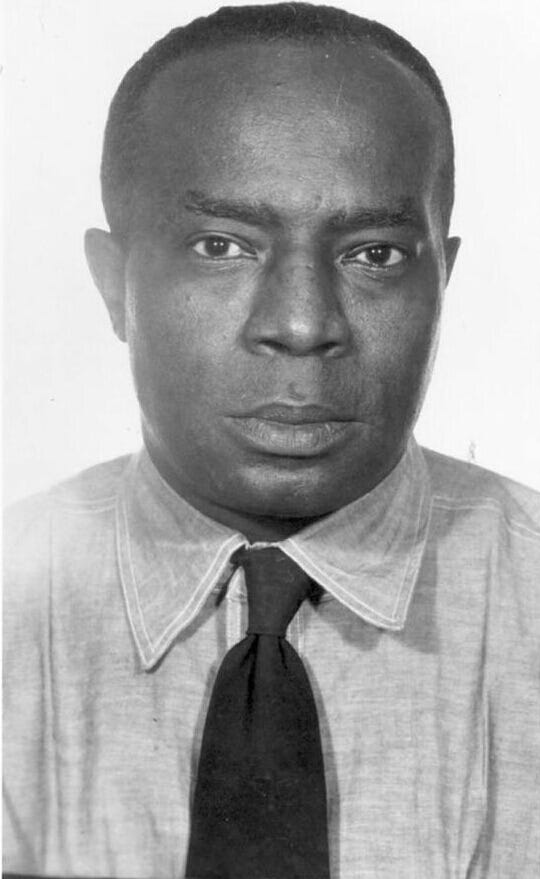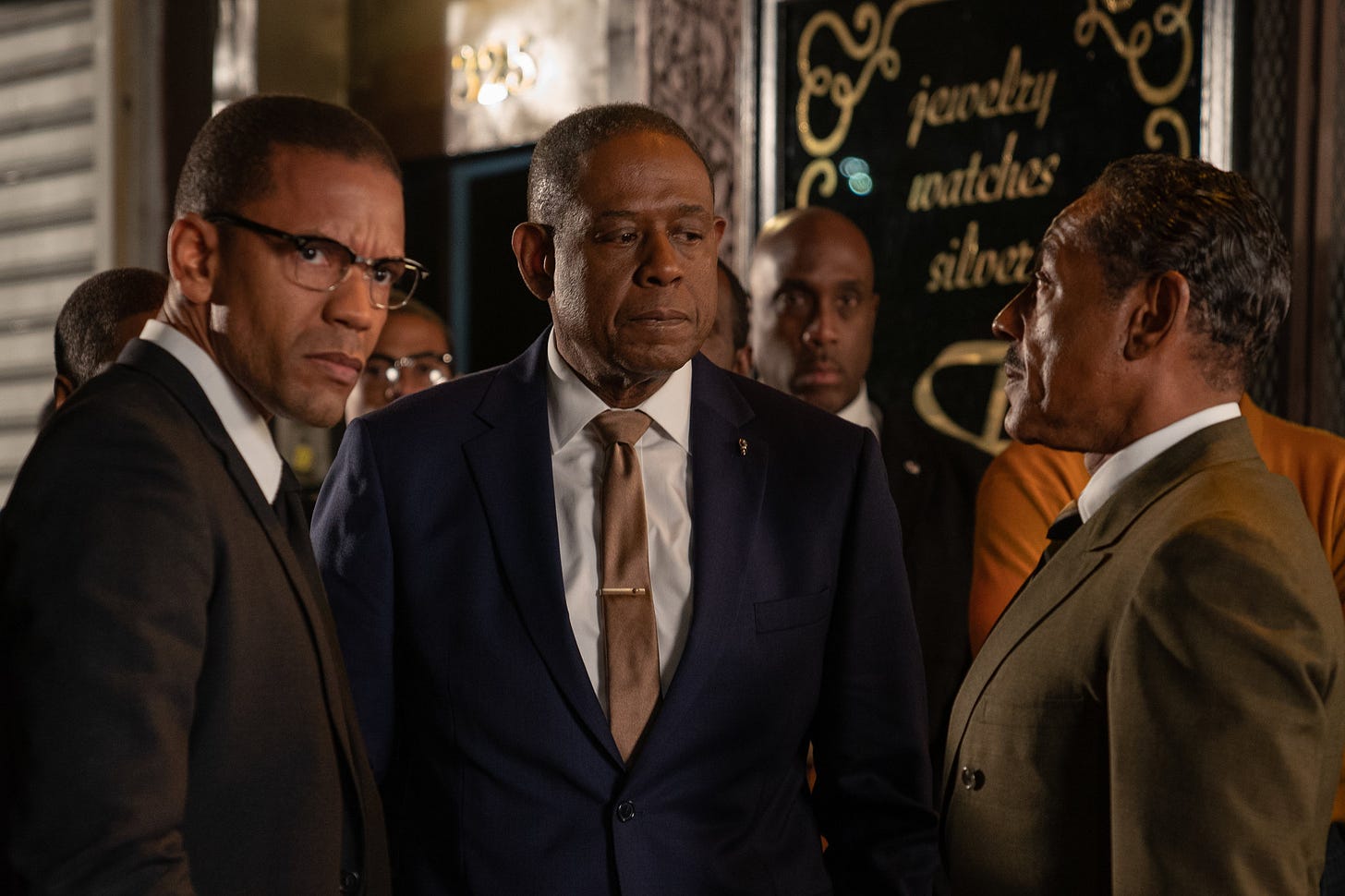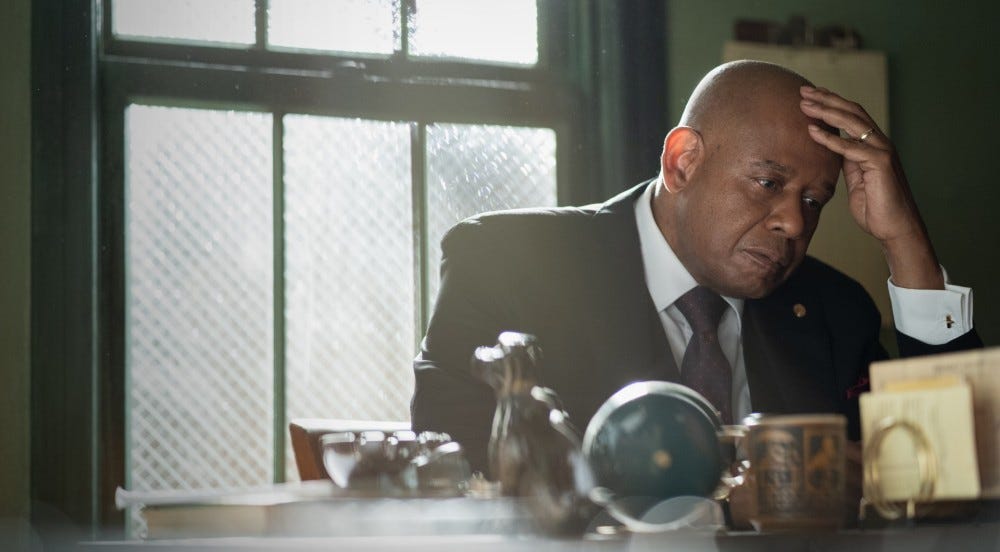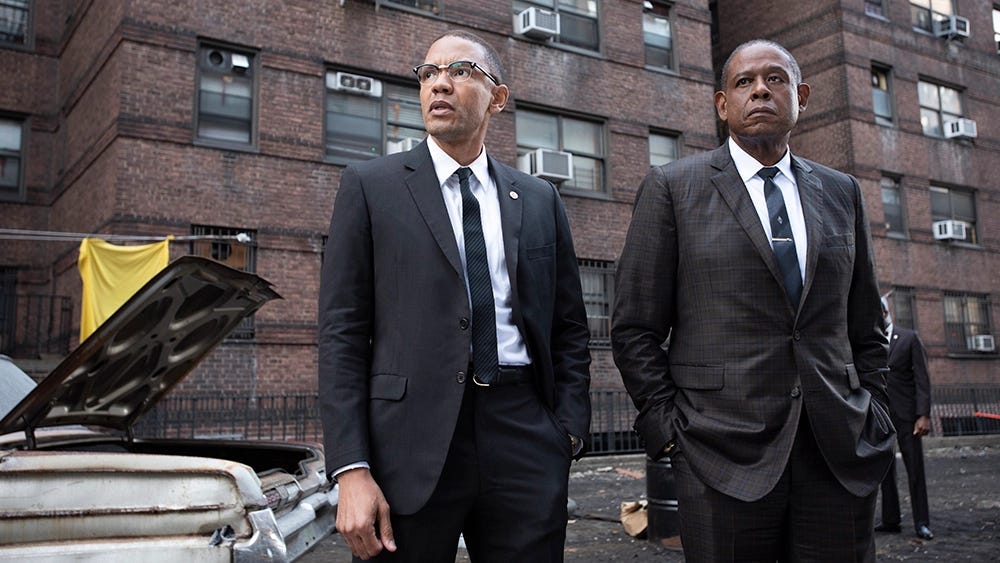When Politics and Crime mix: The story of Ellsworth Raymond "Bumpy" Johnson
The life of Ellsworth Raymond "Bumpy" Johnson is not another typical story of violence, murder, intrigue, and power struggles for supremacy. How could it be otherwise, for Johnson was not only a cold-blooded mobster, but also a passionate chess player, a scholar of history and philosophy, and also possessed a talent for poetry. What drew my attention to the story of Ellsworth Johnson is the fact that there is not much-written information about him other than the book published by his wife, Mayme Johnson, in collaboration with Quinones Miller, entitled Harlem Godfather: The rap on my Husband, Ellsworth "Bumpy" Johnson, and some articles. I believe that the challenge of bringing such a story to television was just that: the blending of true events and fiction. The result is remarkable, especially considering how difficult it was for the actors to improvise to make the story look as real and accurate as possible. So, there is no doubt why the series "Godfather of Harlem" was a success.
Born on October 31, 1905, in Charleston, South Carolina, he experienced racism and its effects at a young age. At the tender age of 10, he and his family left his hometown in fear of reprisals because his brother was accused of murdering a white man. As he grew up, Bumpy Johnson increasingly came into conflict with his white peers in Harlem, where he lived with his older sister Mabel. In the period after puberty, he fell into the clutches of the law, from which he never emerged. By the time he was 30, he had spent half his life in various institutions.

In 1932, after his release from prison and in a miserable financial situation, he met the powerful Stephanie St. Clair, who was involved in illegal gambling and for whom he "worked" as a personal bodyguard, among other things. He orchestrated all the attacks on Dutch Schultz's mafia and made peace with Lucky Luciano. Twenty years later, at the age of 47, at the height of his criminal activity, he was also charged with drug trafficking, particularly heroin, and eventually served a 15-year sentence in Alcatraz prison. In 1963, after serving 2/3 of his sentence, he was released on parole. In 1965, he finally protested with a sit-in in front of a local police station because he was constantly followed and monitored by the police authorities.
Johnson not only led a double criminal life but was also an active member of Harlem's African American community. He supported the underprivileged financially by donating meals and clothing to them. He also had a long friendship with Malcolm X from the time when the latter earned his living through illegal activities. It is also worth noting that Bumpy Johnson was one of the first African American millionaires to make it to the cover of Jet magazine.
The portrayal of a mob in pop culture
It is a fact that several drug lords have developed rich humanitarian activities in the past, Pablo Escobar is a typical example. It is obvious that Bumpy Johnson would not be an exception either, if he did not have other qualities that cannot be simply ignored. In the popular series Godfather of Harlem, Forest Whitaker, who portrays Johnson in the lead role, manages to convey the message of the multidimensional Bumpy. He imagines himself studying Shakespeare and Nietzsche and playing chess.
This image of the modern philosopher balancing so masterfully between two worlds automatically makes him a charming character for the audience. Add to this the philanthropic action mentioned above and the puzzle of an anti-hero who is no saint but takes on those who want to exploit his people is complete.

So, in the adaptation of TV, we meet a man who uses his illegal activities to improve the standard of living in the area where he lives. The oxymoron is that while he derives personal (financial) benefit from destroying his community by flooding it with drugs, he simultaneously protects it from outside threats - a tactic that can also be seen as an act of purification for the suffering he has previously caused. Usually, African American gangsters are portrayed stereotypically and one-sidedly, as opportunists who only know how to suck and trample down every moral barrier. Johnson, on the other hand, "justifies" his decision to mix with the other side of the law by saying that he was denied a scholarship to law school at a young age because of the color of his skin.
Interestingly, Ellsworth Raymond "Bumpy" Johnson did not meet a bloody end like other mobsters. Instead, he died of natural causes - cardiac arrest - on July 7, 1968, at the age of 62, at the Wells Restaurant in Harlem, where he had dined earlier. What is important, however, is the timing of his death, which is supported by the complexity of his character. 1968 is a year marked by violent political unrest, not only in the U.S. but around the world.
So a number of questions quickly arise, such as: could a mobster influence the political and social movements of the time? And how? Was it enough to support them financially and give them protection? Could someone on the other side of the law have a political opinion and act accordingly? The above questions would be easier to answer if Bumpy Johnson had not died at the time but had also decided to get involved in the political events of the time.
Bumpy Johnson under the sociological lenses
However, his complex story can also be viewed from a strictly sociological angle. I would first like to mention the term "elective affinity", first used by Max Weber in his work The Protestant Ethic and the Spirit of Capitalism (1905). to explain the resonance of the teachings of a religious ideology like Protestantism in the example of an economic model, capitalism. Obedience to a strong code of values (religion) under certain economic criteria (accumulation of wealth, overwork, etc.) linked the participants together, even if they were not aware of the existence of this link or could not perceive it.
Similarly, Bumpy Johnson occupied a special social position - a wealthy African American in a time of discrimination and racism, prone to criminality but very high on the social ladder of an African American community for the time - whose actions were directly linked to the social environment in which he grew up and worked. His actions could be seen as legitimate because he had the acceptance of the members of his community with whom he shared common values and experiences. But the protection and financial help he provided to the needy in Harlem, for example, stood in stark contrast to his criminal profile. To dominate Harlem, he drew his influence from certain power networks.
Michael Mann, in his work The Sources of Social Power, defines society as organized, diverse, intersecting, and interacting networks of people seeking economic, ideological, military, and political power. Thus, to gain power, it is enough to have the ideological, political, economic, or even military means to attain it. We are driven to the concentration of social power, which can be distributive, i.e., controlling our environment for personal gain, or collective, whereby one social group is able to control either another social group or the social environment.
Based on the above, we can partially understand the influence Johnson exerted in Harlem through certain networks of power. First, through the members of his gang, which was the military network and was basically a person-centered model of exercising power based on intimidation practices. Second, through his political network. His connections to key political activists of the time made it easier for him to push through an agenda for his own benefit. The ideological implications of his actions are also based on the irrational dichotomy of “help my community - destroy my community”. The common identity, common origin, same skin color, and previous experiences connected Bumpy Johnson to the other members of the community. Based on these elements, he not only managed to gain their acceptance but also to legitimize his illegal activities. So, he was in a state of constant accountability, trying to justify the pain he was inflicting on all those who were associated with him. We should not forget that all power networks are centered models of power whose main feature is the use of violence.
To conclude, theorists like Paul Gilroy raise the issue of reaction to social norms. That is, the criminality of people of African descent is due to their refusal to accept that they live in a hostile, racist system for people without opportunities for social advancement. The problem of black crime, Gilroy argues, must be seen in the historical context of the general conflict between the police and the community under conditions of a worsening crisis. It should be examined more thoroughly whether the choice of a "criminal career" for people belonging to a racial minority is a matter of personal choice or coercion by the social conditions of the time.
Manos Karousos





